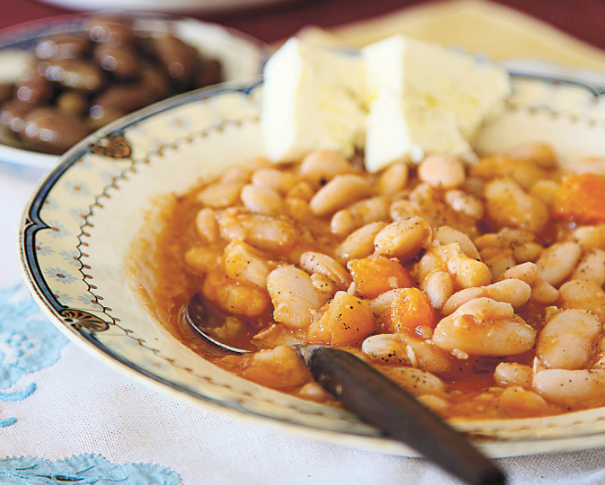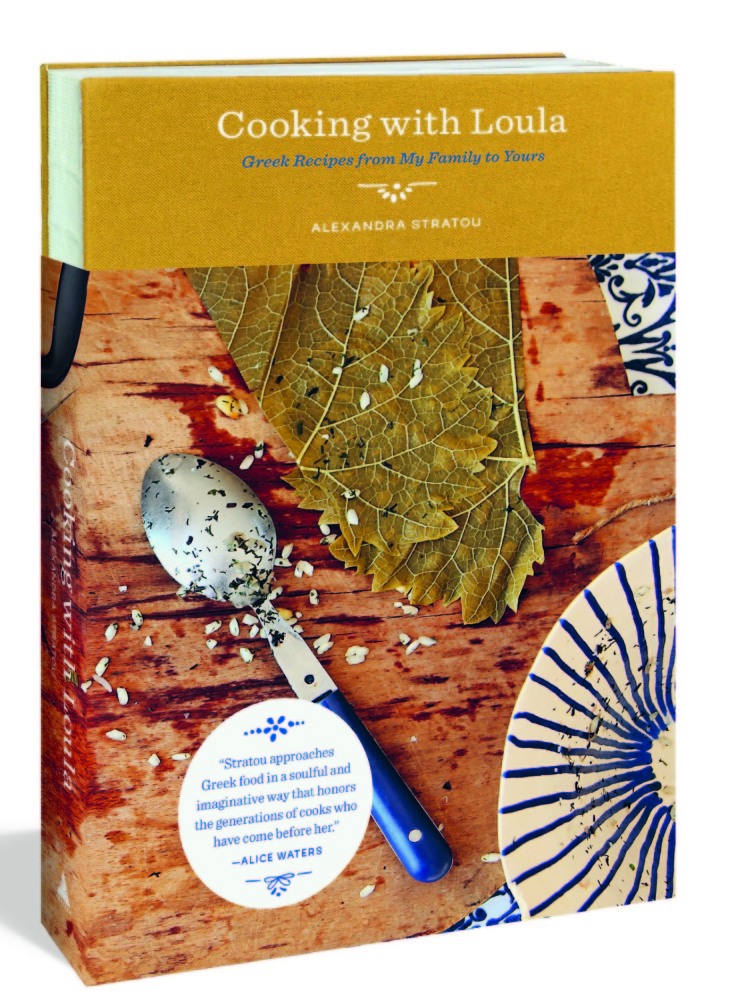“Cooking with Loula, Greek Recipes from My Family to Yours.” By Alexandra Stratou. Artisan New York. $29.95.
The first thing that struck me about “Cooking with Loula, Greek Recipes from My Family to Yours,” was its physical appearance: no spine binding and a partial cover. I hadn’t even cracked the cover and I was already intrigued – congrats to the marketing team for making this cookbook stand out in a tsunami of niche cookbooks!
But like a romantic infatuation that fades with time, this cookbook’s charms – from its gorgeous photos to broad range of recipes – slowly morphed into a trying-too-hard-to-impress distraction.
Random essays and free-form poetry were something to get past. Recipes organized by weekdays, Sundays, holidays and traditions made for a fun initial flip-through, but made choosing between side vegetable dishes later a frustration.
And not to dumb it down, but I would have appreciated a pronunciation guide for the many, many Greek dish names, so I could serve them up with aplomb, instead of a paler description: “Here’s some … Greek beef stew.” (Hunkiar Beyendi) “And some … custard pie!” (Galaktoboureko)
Recipes have rambling, poorly written, introductions (“I have found that if I am to be at peace, I must have a multidimensional relationship with food, just as it was in my home, and many other Greek homes, when I was growing up,” the jam tart entry starts. It goes on: “Pasta flora seemed like an appropriate recipe to accompany these thoughts as the lattice design on top that separates the jam into squares reminds me of the way I, and other humans, often sort our life into boxes.”
I dunno about all that. Sometimes a jam tart is just a jam tart.
For sheer over-the-top imagery, the moussaka recipe says: “If moussaka represents Greece only in one’s mental capacity, then we must let go of it as an emblem. Perhaps the deconstructed identity of a modern-day Greek man or woman lies deep in the center of a moussaka.”
But, like these descriptions, I digress.
The recipes themselves satisfy, with easy-to-follow instructions and range from everyday go-to dishes to complex holiday affairs. As a weekend-warrior chef, I appreciated the inclusion of recipes for basic sauces and purees that I can use in multiple dishes but overall, I felt like this cookbook made me work to hard to get to its strengths. Ultimately, the intimate tone of the writing and rambling additions made it seem more of a self-published vanity press product than a professionally edited cookbook.
FASOLADA (WHITE BEAN SOUP)
Serves 4 to 6, Time under 3 hours
One 16-ounce (500 gram) bag dried white beans
Extra-virgin olive oil
1 onion, grated
2 carrots, cut in half lengthwise, then sliced
1 clove garlic, crushed
2 tablespoons tomato paste
1 small celery stalk, sliced
Salt and pepper
1 bay leaf
Red chili flakes
Place the beans in a large pot, cover with water, and bring to a boil. Boil for 10 minutes, then drain and set aside.
Coat the bottom of the same pot with a thin layer of oil and place over medium heat. Add the onion, carrots and garlic. Cook until the onion is translucent, add the tomato paste and then add the parboiled beans. Stir well to coat the beans in the oil, and add the celery. Cook for 5 minutes, allowing all of the flavors to blend.
Add water to cover the ingredients by about 1 inch, along with a large pinch of salt and the bay leaf. Bring to a boil, and then lower the heat to a simmer. Continue to simmer gently for 1½ to 2 hours. The beans are ready when they are so full of water that they want to burst. Taste and adjust the salt. Add pepper and chili flakes to taste. Remove the bay leaf and the garlic if you see them swimming around still intact.
Serve in a soup bowl, with some leaves of baby lettuce, Taramosalata (cod roe dip,) smoked herring, black olives, feta and fresh bread.
Send questions/comments to the editors.




